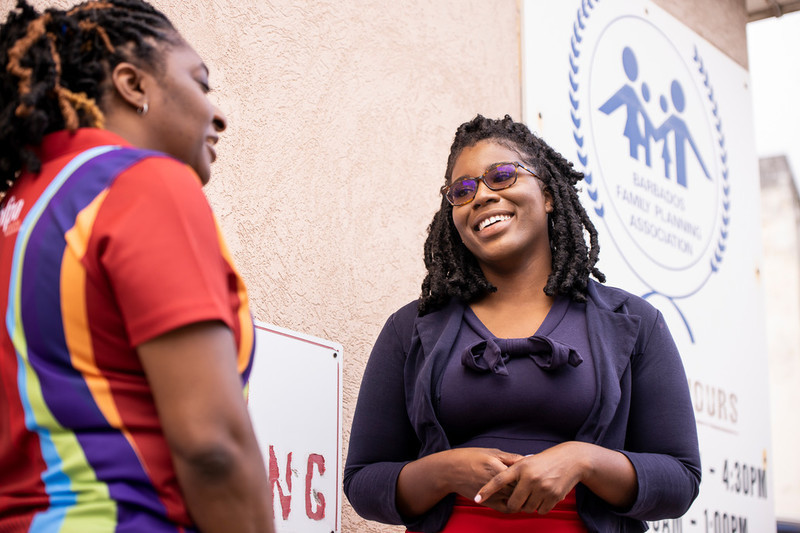FEBRUARY 4, 2021 WORLD CANCER DAY
National health systems across the Americas and Caribbean have collapsed in an attempt to respond to COVID-19. They have accumulated a large debt in the prevention, diagnosis and treatment of cancer. In this global health crisis, access gynaecological consultations is no longer a priority.
Since the beginning of the pandemic, many people with cancer have been forced to discontinue their medical care, impacting on the progression of the disease; together with the fact that health resources decreased significantly due to prioritization.
In this context, the prevalence of breast and cervical cancer will increase among women, as will their morbidity and mortality. The World Health Organization (WHO) estimates that in 2020 90% of global deaths from this disease occurred in low- and middle-income countries.
Cervical cancer is the fourth most common cancer in women globally. In this regard, there are early prevention tools, since the IPPF recommends that children and adolescents from 9 to 14 years, regardless of their sex, receive the vaccine against the Papillomavirus (HPV) since anyone can acquire the virus.
For this reason, it is urgent that the governments of the countries of the Americas and the Caribbean manage and implement gynecological and oncological services, even during the pandemic. The WHO reports that 50% of governments (which have) cancer services have partially or totally interrupted them due to the pandemic. Barriers to promotion and access to comprehensive health, in the context of the pandemic, are a lost of opportunity to prevent and address this and other curable health issues. Our region is at the top of the list of countries with high levels of inequity, including access to effective prevention, diagnosis, and treatment. These services must be affordable or free, due to the catastrophic impact that access to health services has, when the cost must be met with own resources, out of pocket.
We call on governments in the Americas and the Caribbean not to postpone the provision of quality comprehensive health services for children, adolescents, youth and women during the COVID crisis-19 and thus prevent tens of thousands of preventable deaths from treatable and curable diseases.
Cancer in times of pandemic
Cancer prevention, diagnosis and treatment services cannot be stopped
JANUARY 4, 2021 WORLD CANCER DAY
National health systems across the Americas and Caribbean have collapsed in an attempt to respond to COVID-19. They have accumulated a large debt in the prevention, diagnosis and treatment of cancer. In this global health crisis, access gynaecological consultations is no longer a priority.
Since the beginning of the pandemic, many people with cancer have been forced to discontinue their medical care, impacting on the progression of the disease; together with the fact that health resources decreased significantly due to prioritization.
In this context, the prevalence of breast and cervical cancer will increase among women, as will their morbidity and mortality. The World Health Organization (WHO) estimates that in 2020 90% of global deaths from this disease occurred in low- and middle-income countries.
Cervical cancer is the fourth most common cancer in women globally. In this regard, there are early prevention tools, since the IPPF recommends that children and adolescents from 9 to 14 years, regardless of their sex, receive the vaccine against the Papillomavirus (HPV) since anyone can acquire the virus.
For this reason, it is urgent that the governments of the countries of the Americas and the Caribbean manage and implement gynecological and oncological services, even during the pandemic. The WHO reports that 50% of governments (which have) cancer services have partially or totally interrupted them due to the pandemic. Barriers to promotion and access to comprehensive health, in the context of the pandemic, are a lost of opportunity to prevent and address this and other curable health issues. Our region is at the top of the list of countries with high levels of inequity, including access to effective prevention, diagnosis, and treatment. These services must be affordable or free, due to the catastrophic impact that access to health services has, when the cost must be met with own resources, out of pocket.
We call on governments in the Americas and the Caribbean not to postpone the provision of quality comprehensive health services for children, adolescents, youth and women during the COVID crisis-19 and thus prevent tens of thousands of preventable deaths from treatable and curable diseases.
when
country
Belize









